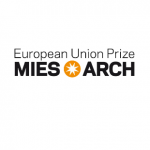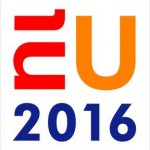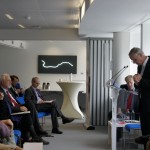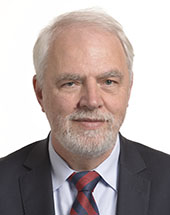Urban dimension of financial instruments – meeting in Strasbourg on April 14th
 Last meeting of the URBAN Intergroup which took place on Thursday, April 14th at the European Parliament in Strasbourg was devoted to the financial instruments (FI).
Last meeting of the URBAN Intergroup which took place on Thursday, April 14th at the European Parliament in Strasbourg was devoted to the financial instruments (FI).
Frank Lee, Head of Financial Instruments Advisory Division from the European Investment Bank, made the presentation “What next after JESSICA? The urban dimension of financial instruments in 2014-2020“. At the beginning of the meeting some reasons of using FI was underlined which are: a more efficient use of public sector resources, especially for revenue generation or cost saving projects; good leverage potential, also through recycling of funds; added financial discipline into the project; possibility of combining them with technical support and/or capital grants to overcome market barriers. In reference to the last point, it has been stressed that particularly in the urban environment there is a need to combine grants with FI and the balance between both is very important.
During the presentation JESSICA initiative was summed up as well as different urban models of using FI in the 2007-2013 financial perspective. Lithuanian case study was highlighted in which combination of loans and grants let renovate multi-apartment buildings. Moreover, Northwest England case study showed how 16 local authorities run Urban Development Fund which provides debt funding for urban regeneration projects. During the debate, MEPs agreed that the FI must be tailored into the local needs. In conclusion, Jan Olbrycht, President of the URBAN Intergroup, underlined that ex-ante conditionality is the way to choose best instrument for concrete challenge and that in general there is a growing debate about the financial instruments inside the cohesion policy.
Urban dimension of financial instruments in 2014-2020 – Frank Lee’s presentation
A sustainable way of achiving EU economic and social objectives – Financial instruments
London Green Fund – Case Study
More information about Fi-compass
Event on intergartion of refugees in European cities
The URBAN Intergroup jointly with the European Investment Bank (EIB) organised a conference “How Europe’s towns and cities can address current refugee crises?” The event took place on Wednesday April 6th in Brussels’ EIB Office.
In the welcoming speech, Mr Mikołaj Dowgielewicz, Permanent Representative of the EIB to the EU, stressed that the EIB’s aim is to trying to help Members States and cities to handle in the most appropriate way investments needed to respond the unprecedented refugee’s crisis. Jan Olbrycht, President of the URBAN Intergroup, explained that “we need to reflect about the current situation EU cities are facing, but also about the evolution of the whole migration process in the future. Moreover, we should think about the instruments to solve immediately the most urgent problems, and what should be changed in the functioning of the cities.”
The first session of the event focused on the integration of refugees from the EU institutions’ perspective. Representatives of the DG Migration and Home Affairs and of the DG Regional and Urban Policy from the European Commission presented the available instruments to tackle the crisis and possibilities to use them. It has been underlined that from the beginning of the refugee’s crisis, European cities showed great generosity to welcome migrants.
The aim of the second session was to present the issue of refugee’s integration from the European towns and cities perspective. Lambert van Nistelrooij, Vice-president of the URBAN Intergroup, who moderated this part of the seminar, stressed that mayor’s are at the political lead in hosting refugees. CEMR representative drew attention to the fact that the EU institutions and Members States need coordination to better distribute refugees in the whole territory, between big but also small and medium size European cities. EUROCITIES representative presented the main points of its recent report on refugees’ perception and their integration in cities, as well as EUROCITIES statement on asylum in cities. At the end of the meeting, the representative of the city of Amsterdam presented the (issue of the) inclusion of migrants and refugees in the EU Urban Agenda partnership.
In conclusion, Jan Olbrycht noticed that “we are now observing just the beginning of a long-term migration process in the European Union”. The European institutions must therefore start the rethinking of its statistics and reviewing its policies for the future.
EU Urban Agenda partnership on Inclusion of Migrants and Refugees
CEMR resolution on Refugee crisis
Eurocities report on refugee perception and integration in cities
Eurocities Integrating Cities Charter
2nd implementation report 2015 (implementation of Integrating Cities Charter)
Eurocities statement on asylum in cities
EU Prize for contemporary architecture – meeting in Strasbourg on February 4th
 Last meeting of the URBAN Intergroup, which took place on Thursday February 4th at the European Parliament in Strasbourg, was dedicated to the biennial European Union Prize for contemporary architecture/Mies van der Rohe Awards.
Last meeting of the URBAN Intergroup, which took place on Thursday February 4th at the European Parliament in Strasbourg, was dedicated to the biennial European Union Prize for contemporary architecture/Mies van der Rohe Awards.
This Prize was created in 1988 jointly by the European Commission and the Mies van der Rohe Foundation in Barcelona and is currently supported by Creative Europe Programme. It is the most prestigious architecture prize for finished constructions in Europe.
The presentation of EU Prize for contemporary architecture and its potential contribution to EU policies was made by Monica Urian, European Commission, DG Education and Culture, Creative Europe Programme. At the beginning of the meeting a trailer showed the reflection of architects across Europe about a European Identity in architecture. Afterwards, a big development of the Prize has been presented since its creation. The role of the unique archive with all nominated projects was underlined as well as the whole organizational network. During the discussion MEPs particular appreciated collected data base on contemporary architectural trends and analyses made which shows among others typologies of recently constructed buildings in Europe. In conclusion, participants of the meeting discussed how to further developed this unique EU Prize and link it to the policy making.
In 2015 Prize edition 420 nominated projects were selected from which the Jury members shortlisted 40 of them. Five finalist works competed for the Prize and one Emerginng Architect was chosen. The winner of 2015 edition is Philharmonic Hall in Szczecin, in Poland.
Sustainable urban mobility – meeting in Strasbourg on January 21st
 URBAN Intergroup met at the European Parliament in Strasbourg on Thursday January 21st to discuss the topic of urban mobility. Karima Delli, vice-president of the URBAN Intergroup and European Parliament rapporteur of the INI report, presented the key points of the EP resolution on sustainable urban mobility adopted in plenary on the 2nd of December 2015.
URBAN Intergroup met at the European Parliament in Strasbourg on Thursday January 21st to discuss the topic of urban mobility. Karima Delli, vice-president of the URBAN Intergroup and European Parliament rapporteur of the INI report, presented the key points of the EP resolution on sustainable urban mobility adopted in plenary on the 2nd of December 2015.
At the beginning of the presentation, Ms Delli underlined that there is a social and climate emergency linked with and to be dealt by the transport sector. She presented some of the problems related to transport such as pollution and road accidents. Every year, about 430,000 Europeans die prematurely due to fine particles mainly emitted by diesel engines. Nearly 42,000 deaths are also caused by road accidents every year in Europe, with an estimated cost of €45 billion.
The EP resolution emphasised the importance of the Sustainable Urban Mobility Plans in achieving EU targets regarding the CO2 emissions, air pollution and accident reduction. It calls Member States to promote public transport with the view to increase its use by 2030, to support the development of innovative forms of mobility and to set up ambitious targets for cycling rates by 2030.
Karima Delli pointed out the current problem of the ‘use of revenues’ principle with regard to road charging. She called for a proportion of revenue from the use of road infrastructure (road charging and/or Eurovignette) to be dedicated to improving sustainable urban mobility.
During the discussion, MEPs noticed that the urban mobility was one of the 12 thematic objectives of the EU Urban Agenda. They also stressed that the work of the future partnership should take on board the European Parliament position on sustainable urban mobility. Moreover, participants agreed that one of the first pilot partnerships dedicated to air quality should take on board the issue of transport and mobility.
Urban priorities of the upcoming Dutch presidency – meeting in Strasbourg on November 26th
 URBAN Intergroup’s members and partners met on Thursday November 26th at the European Parliament in Strasbourg with Nicolaas Beets, Dutch Urban Envoy. Mr Beets presented priorities of the upcoming Dutch presidency in the field of urban development. He explained that the goals for the Dutch EU presidency will be to launch the EU Urban Agenda by endorsing the Pact of Amsterdam, launching first partnerships and adopting Council conclusions on the EU Urban Agenda. During the presentation, a list of 12 themes of the EU Urban Agenda has been presented as well as the working method -partnerships. Mr Beets confirmed that 4 themes – and not 3 as previously confirmed by the European Commission – will be implemented as “pilot” partnerships. Those are: housing, inclusion of migrants and refugees, urban poverty and air quality (as the new one). MEPs raised questions concerning practical issues how to join the partnerships and on the possible role of the European Parliament in the whole process of the EU Urban Agenda.
URBAN Intergroup’s members and partners met on Thursday November 26th at the European Parliament in Strasbourg with Nicolaas Beets, Dutch Urban Envoy. Mr Beets presented priorities of the upcoming Dutch presidency in the field of urban development. He explained that the goals for the Dutch EU presidency will be to launch the EU Urban Agenda by endorsing the Pact of Amsterdam, launching first partnerships and adopting Council conclusions on the EU Urban Agenda. During the presentation, a list of 12 themes of the EU Urban Agenda has been presented as well as the working method -partnerships. Mr Beets confirmed that 4 themes – and not 3 as previously confirmed by the European Commission – will be implemented as “pilot” partnerships. Those are: housing, inclusion of migrants and refugees, urban poverty and air quality (as the new one). MEPs raised questions concerning practical issues how to join the partnerships and on the possible role of the European Parliament in the whole process of the EU Urban Agenda.




